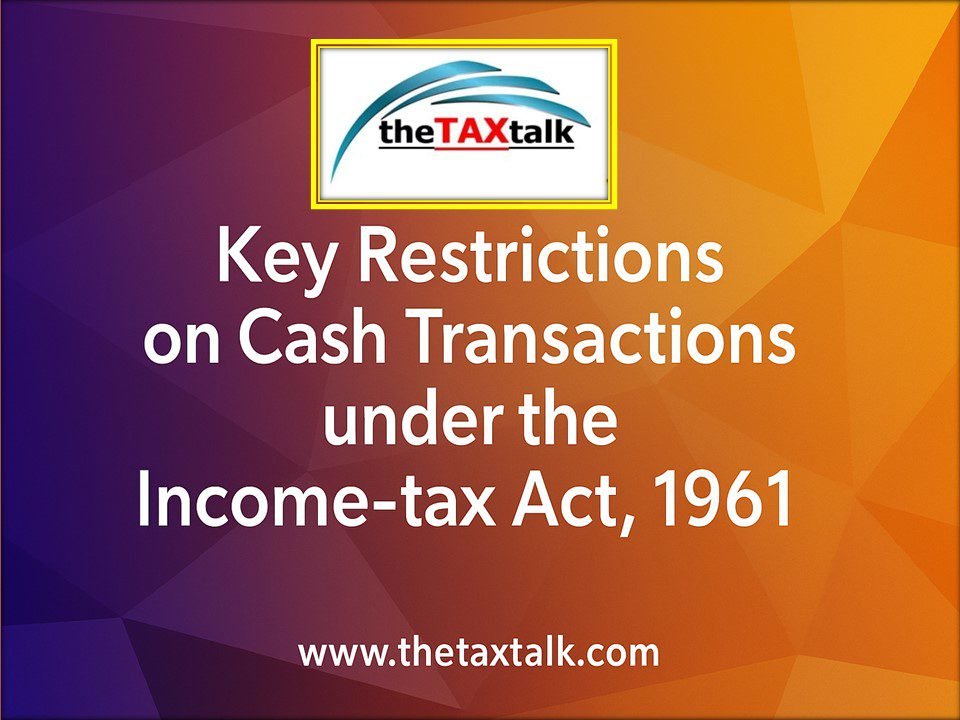![]()
Key Restrictions on Cash Transactions under the Income-tax Act, 1961
1. Section 40A(3) – Disallowance of Cash Expenditure
Any business expenditure paid in cash exceeding ₹10,000 (₹35,000 for payments to transporters) to a person in a day is disallowed.
If an expense allowed earlier is later paid in cash, it becomes income under Section 40A(3A).
Rule 6DD provides exceptions for unavoidable cases such as payments to Government, farmers, or where banking facilities are unavailable.
2. Section 269SS – Restriction on Acceptance of Cash Loans or Deposits
No person shall accept any loan, deposit, or advance (for immovable property) of ₹20,000 or more in cash.
It must be received only through an account payee cheque, account payee bank draft, or electronic mode.
Violation attracts penalty under Section 271D, equal to the amount accepted.
3. Section 269T – Restriction on Repayment of Cash Loans or Deposits
No person shall repay any loan, deposit, or specified advance of ₹20,000 or more otherwise than by account payee cheque, account payee bank draft, or electronic mode.
The rule applies to the repayment of principal and interest together, if the total equals or exceeds ₹20,000.
Contravention attracts penalty under Section 271E, equal to the amount repaid.
The section ensures that cash loans cannot be repaid outside the banking system, closing the loop created by Section 269SS.
4. Section 269ST – Restriction on Receipt of Cash
No person shall receive ₹2,00,000 or more in cash:
From a person in a day, or
In a single transaction, or
In respect of one event or occasion.
Violation leads to penalty under Section 271DA, equal to the cash amount received. Government, banks, and notified persons are exempt.
5. Conclusion:
Sections 40A(3), 269SS, 269T, and 269ST form the core of India’s anti-cash and transparency framework.
They collectively ensure that large business payments, loans, deposits, and receipts are routed through banking channels, reducing the scope for unaccounted transactions and tax evasion.

